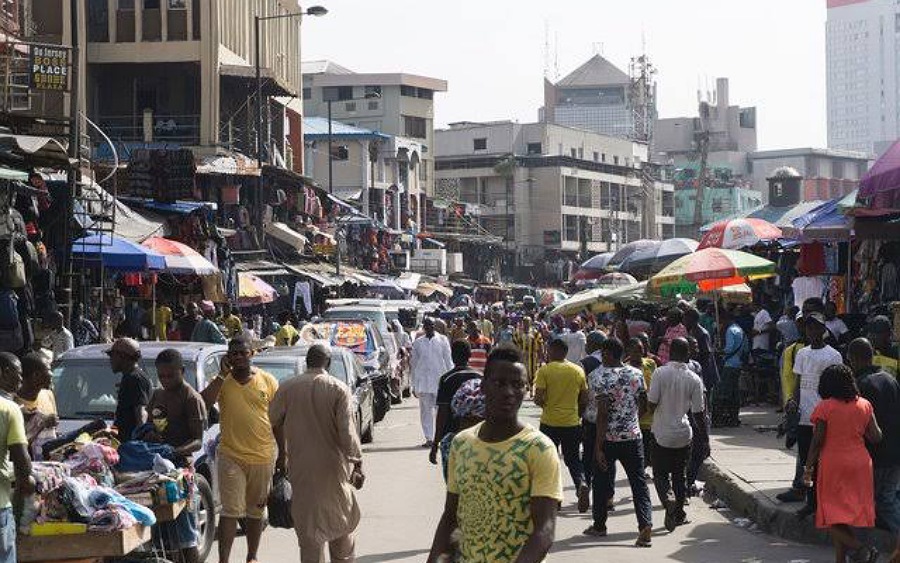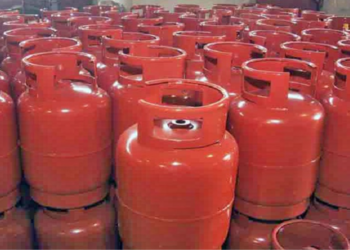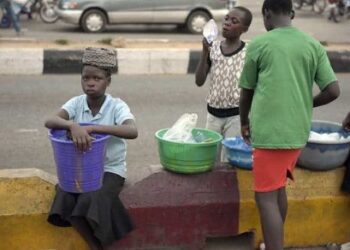The National Bureau of Statistics (NBS) reported on Thursday that 133 million Nigerians are multidimensionally impoverished, representing 62.9% of the population. This gives Nigeria a Multidimensional Poverty Index (MPI) of 0.257.
Using the modified form of a system devised by the United Nations Development Program (UNDP), the NBS said poor people in Nigeria experience a little over one-quarter of all possible deprivations.
Additionally, 65% of the poor people, an estimated 80 million people, live in the North, while 35% (about 47 million) live in the southern region.
Understanding multi-dimensional poverty: According to the UNDP, poverty can be qualitatively analyzed by the use of “dimensions of poverty”. These dimensions can be further divided into “indicators”. To be “multidimensionally poor” means to face deprivations in more than one dimension or at least 26% of the indicators. With four dimensions and fourteen indicators, one can be classed as poor if they faced deprivations in up to four of the fourteen indicators.
Largest contributors: All of the fourteen indicators contribute to poverty in Nigeria, and all to varying extents. The report states that multidimensional poverty is significantly higher in rural areas (72%) than in urban areas (40%). Five indicators stand out which show major deprivations across the nation.
Time to healthcare: According to the NBS, the major bane affecting the Nigerian populace is the access time to healthcare services. Time to healthcare contributed 12.6% to the national MPI.
- By definition, a person who cannot access a healthcare facility in less than 30 minutes on foot is said to be deprived in terms of time to healthcare.
- Last month, in a symposium on Nigeria’s medical industry brain drain, the President of the country’s National Medical Association (NMA), Dr Uche R. Ojinmah, revealed that the country presently has only about 24,000 licensed medical doctors.
- With Nigeria’s population estimated at 211.32 million, this means the doctor-to-patient ratio is 1:8,805. The World Health Organisation (WHO) recommends a ratio of 1:600. Dr Ojinmah stated that some states had doctor-to-patient ratios reaching as high as 1:30,000-45,000.
Food insecurity: This is defined through the Food and Agriculture Organization’s (FAO) Food Insecurity Experience Scale (FIES). Unsurprisingly, this is a major factor in Nigeria’s poverty levels, contributing about 12.5% to the national MPI.
- Nigeria’s food inflation in October is the highest the country has experienced since October 2005.
- Nigeria is a net importer of food, and the Russia-Ukraine conflict in Eastern Europe removed a major source of grain imports.
- Investment in agriculture has been anaemic, and the late-season floods which swept through parts of the country did significant damage to a lot of farms and potential harvests.
School attendance: Defined as when a household has a child between the ages of 6 and 15 not attending school, NBS statistics show that 29% of all school-aged children are out of school. School attendance contributed 9.6% to the national multidimensional poverty index.
- School attendances are particularly problematic in the North-East and North-West regions of the country, with some states such as Bauchi and Sokoto showing more than 50% deprivation: more than half of the school-aged children in these states are not in school.
- These rates begin to spike dramatically when we consider education attainment (people aged 10 and above who have not completed up to six years of school).
- Multiple states in the North post rates of over 70%, implying that some children are starting school later than they should. This, or they were neither completing nor going further than primary education.
Nutrition: One might eat, but food requires not just quantity, but quality. It is not unusual to see families compromise on one for the other, particularly favouring quantity over quality. Undernutrition contributed 9.3% to the aggregate national MPI.
- UNDP and NBS define nutrition deprivation as when a household has undernourished children under the age of 5 or adults with a body mass index of lower than 18.5.
- Families experiencing food insecurity would often opt for foods high in carbohydrates and sugars, especially if healthier alternatives are too expensive. This creates a heavy reliance on foods like bread and rice instead of fresh vegetables or protein.
Cooking fuel: How does a household cook or heat its meals? “Clean” energy like liquified petroleum gas (LPG) and electric cookers, or “dirty” energy such as charcoal or firewood? The answer can be found with the International Energy Administration (IEA), which estimates that nearly 70% of Nigerians are still heavily dependent on biofuels and waste for heat and energy.
- This is corroborated by the MPI survey, which shows that in 32 out of 37 states, more than 90% of poor and vulnerable households reported some level of cooking fuel deprivation.
- This issue runs across both rural and urban areas, as in the latter, LPG price hikes are frequent and the electricity supply is low. Cooking fuel made an 8.2% of the national MPI.
Bottom line: Different things may contribute to multi-dimensional poverty in rural and urban areas. 72% of people living in rural areas are poor, as opposed to 42% in urban areas. Significantly, as much as 70% of Nigeria’s population lives in rural areas.
- The five indicators discussed above are the major contributors to multidimensional poverty in rural areas, but other indicators such as Sanitation, Years of schooling, and Housing materials also play a large role.
- Rural communities are less likely to have sanitary facilities such as toilets and bathrooms with flowing water or proper drainage systems. In the case of the former, it is not uncommon to see households have to share these facilities when available. Children in rural communities are likely to either start school early or drop out late.
- This might be due to households struggling with money for fees or children having to drop school to provide labour. It is also very common for houses in rural areas to lack parts such as proper roofing and windows, or mosquito nets.
- In urban areas, the largest contributing indicator is Food insecurity by some distance, but Sanitation, Unemployment, and Security shocks are also prevalent. Cities are often overcrowded, with residents often living in small apartments and forced to share facilities.
- Unemployment is also high, and more and more people move from rural to urban areas in search of gainful work. Many may not find it, which will in turn lead to high levels of crime.



















